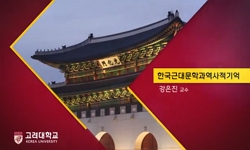This dissertation argues that the relationship between the meaning of a text and the author's self can be elucidated through a study of Milton and his contemporaries. In Milton's self-representation, the authorial persona is legitimized through rheto...
http://chineseinput.net/에서 pinyin(병음)방식으로 중국어를 변환할 수 있습니다.
변환된 중국어를 복사하여 사용하시면 됩니다.
- 中文 을 입력하시려면 zhongwen을 입력하시고 space를누르시면됩니다.
- 北京 을 입력하시려면 beijing을 입력하시고 space를 누르시면 됩니다.
Milton and prophetic authorship in revolutionary print culture (John Milton, Henry Jessey, Mary Cary, Anna Trapnel).
한글로보기https://www.riss.kr/link?id=T10717779
- 저자
-
발행사항
[S.l.]: The Claremont Graduate University 2005
-
학위수여대학
The Claremont Graduate University
-
수여연도
2005
-
작성언어
영어
- 주제어
-
학위
Ph.D.
-
페이지수
222 p.
-
지도교수/심사위원
Adviser: Constance Jordan.
-
0
상세조회 -
0
다운로드
부가정보
다국어 초록 (Multilingual Abstract)
This dissertation also argues that a richer understanding of seventeenth-century authorship is to be found through the examination of non-canonical authors and genres. It encourages an appreciation of the female voices of the period, some of the first instances of the middling sort of Englishwomen in print. Through expansion of the women writers' agency to include the ministers, politicians, and stationers who collaborated in the publication and dissemination of their works, the concept of women's authorship is demonstrated to be more complicated than it is generally thought to be.
Many Milton scholars have begun to situate his prose in the Revolutionary print explosion from which it came and to attend to the material conditions of production of each edition in question. This dissertation contributes to the ongoing projects of revising the received knowledge about Milton as a transcendent figure who stood above the milieu in which he worked. Milton's early self as seen in the context of contemporaneous prophetic selves in print can contribute to new interpretations of his great poems. More immediately, it grounds both the high culture and low culture expressions of literary authority in the economic, institutional, and political contests in which they were produced.
This dissertation argues that the relationship between the meaning of a text and the author's self can be elucidated through a study of Milton and his contemporaries. In Milton's self-representation, the authorial persona is legitimized through rhetorical mastery of both classical and biblical sources. His implicit and explicit references to divine inspiration continue to inform current understandings of the identity of "John Milton." Analysis of this self can be enhanced through a comparison of the autobiographical passages in his prose to the prophetic authorship of Henry Jessey, Mary Cary, and Anna Trapnel which applies a production-centered, rather than a more traditional author-centered, approach to the networks of people who brought the texts into being.
This dissertation also argues that a richer understanding of seventeenth-century authorship is to be found through the examination of non-canonical authors and genres. It encourages an appreciation of the female voices of the period, some of the first instances of the middling sort of Englishwomen in print. Through expansion of the women writers' agency to include the ministers, politicians, and stationers who collaborated in the publication and dissemination of their works, the concept of women's authorship is demonstrated to be more complicated than it is generally thought to be.
Many Milton scholars have begun to situate his prose in the Revolutionary print explosion from which it came and to attend to the material conditions of production of each edition in question. This dissertation contributes to the ongoing projects of revising the received knowledge about Milton as a transcendent figure who stood above the milieu in which he worked. Milton's early self as seen in the context of contemporaneous prophetic selves in print can contribute to new interpretations of his great poems. More immediately, it grounds both the high culture and low culture expressions of literary authority in the economic, institutional, and political contests in which they were produced.











